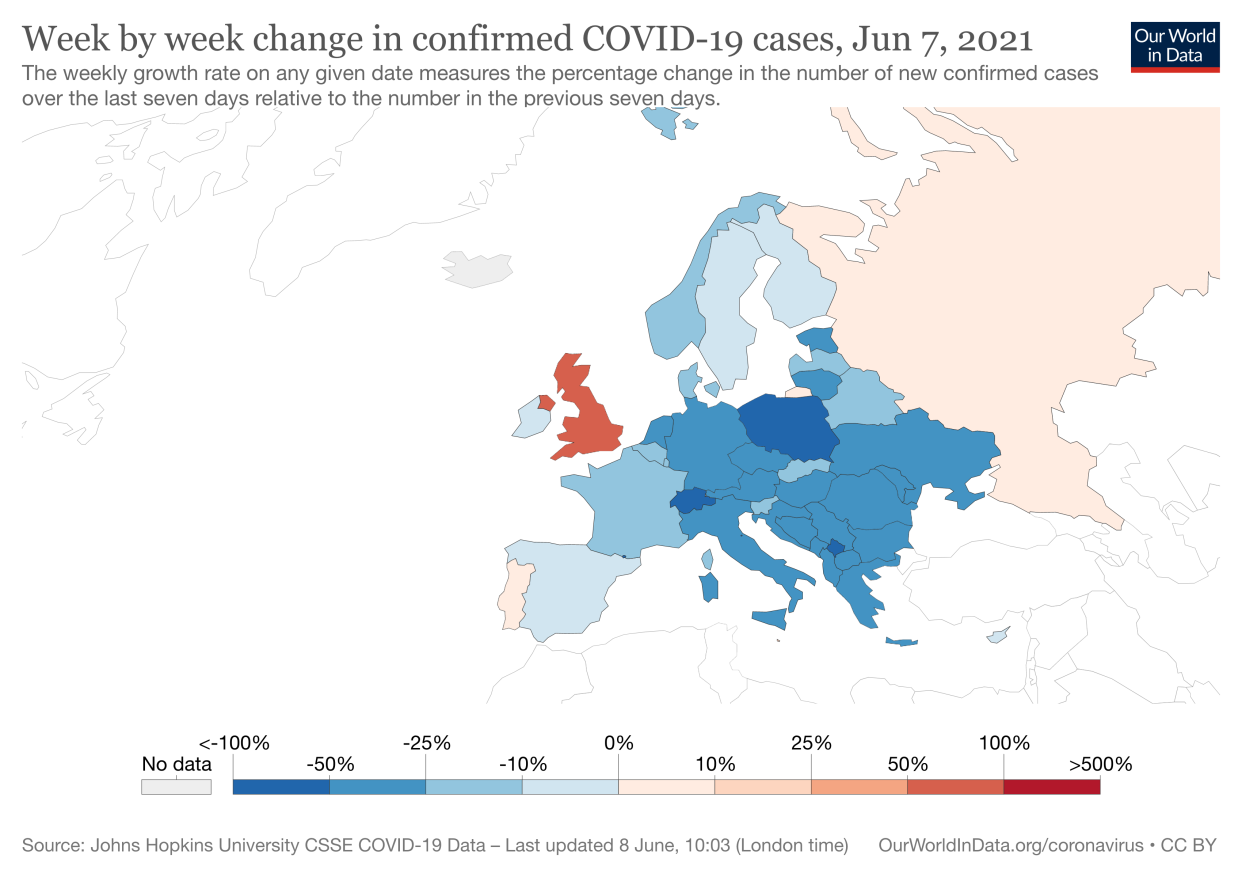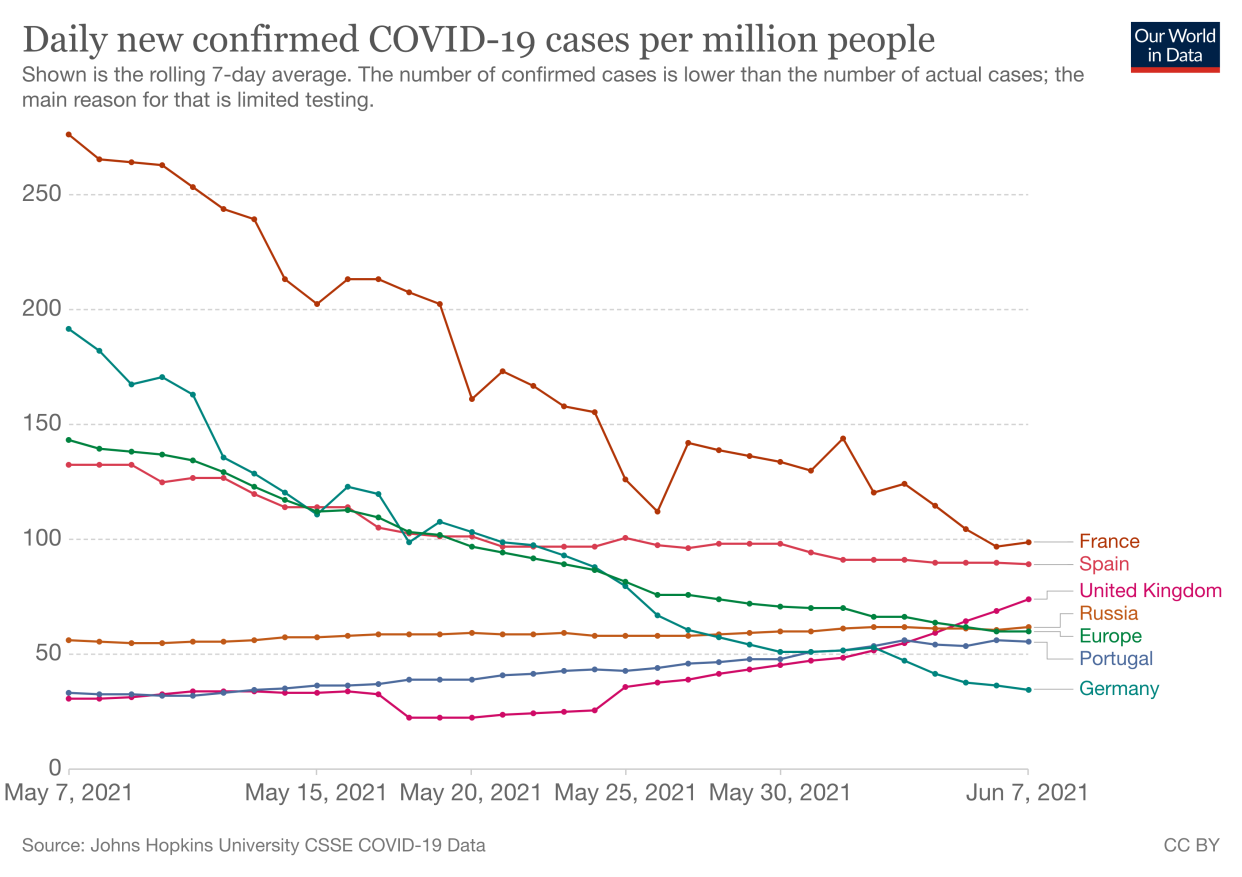UK now has steepest rise in Covid infections across whole of Europe
The UK has now the steepest increase in Covid cases in Europe.
Cases have risen by 56.5% in the last seven days up to 7 June compared to the previous week, according to Our World in Data.
It comes as the more transmissible Indian variant, which has been renamed the "Delta" variant by the World Health Organisation, continues to spread across the country.
Covid cases are also rising in Portugal, which has seen a rise of 8.6% week on week.
Meanwhile, Russia has seen a weekly increase of 3.2% as of 7 June compared to the previous week.

While every other European country has seen infection rates falling, many still have cases that are much higher than the UK.
These are the 10 European countries with the highest seven-day rolling average case rate per million people.
Denmark: 141.816
Sweden: 135.639
Latvia: 127.921
Netherlands: 126.075
Slovenia: 117.505
Belgium: 114.265
Lithuania: 113.35
Greece: 107.728
France: 98.841
Andorra: 92.446
The UK’s rate is currently much lower at 74.006 but infection numbers are rising quickly.
Watch: 'Other options' for 21 June being drawn up as government weighs options
The number of hospital admissions has yet to see a corresponding increase as the vaccination programme continues to progress rapidly.
But the surge has still cast uncertainty over whether remaining lockdown restrictions can be lifted in line with the government’s roadmap on 21 June.

The state of infection numbers and variants of concern are two of the government’s “four tests” when considering each stage of unlocking.
Downing Street has said there is “nothing in the data” to suggest a delay would be needed.
But an increasing number of senior advisers are believed to be pushing for a delay of up to a couple of weeks to fully understand the impact of the Indian variant.
The Times reported on Tuesday that 21 June's lockdown easing could be delayed by between two weeks and a month.
Boris Johnson is expected to make a formal announcement on Monday next week.


